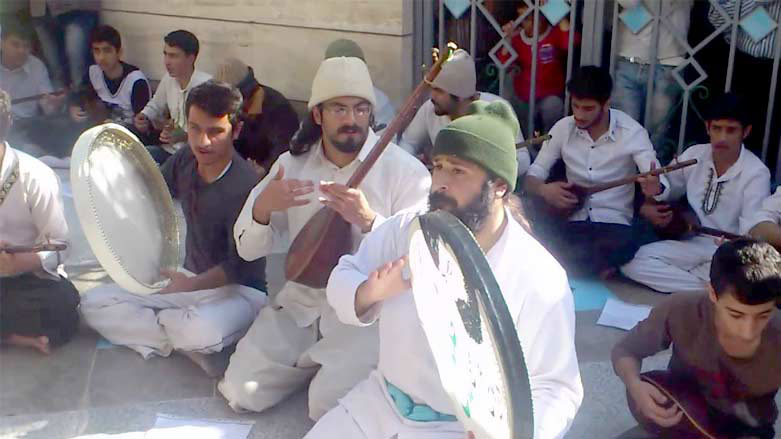Yarsan activists arrested in Iran

ERBIL, Kurdistan Region (K24) – Iranian security forces have arrested over one hundred Yarsan activists in Kermanshah and Kurdistan Provinces after the elections on Feb. 26 of the Assembly of Experts and the Parliament in Iran.
Head of Komala (Society of Revolutionary Toilers of Iranian Kurdistan) Arab Relations Soran Palani told Asharq Al-Awsat newspaper, “The Iranian regime has arrested over one hundred Kurdish activists in Iranian Kurdistan (Rojhalat) after the recent elections."
A new wave of religious and ethnic minorities have been detained following the elections. Palani said in the cities of Sanandaj (Sina), Saqqez and Mariwan the Iranian security forces have arrested the largest number of Kurdish activists.
He added that Arab and Baluch activists have also been detained in the two provinces of Khuzestan and Sistan-o-Baluchestan since the elections. The exact number of those captured is not clear.
"The Iranian regime is intimidating Kurds to make them participate in the second round of elections in the next month [April 29]," Palani claimed. An estimated 60 percent of Kurds refused to take part in the February elections.
A Yarsan or Ahl-e Haqq (People of Truth) faith activist Kiyarash Shahsawari said, “Revolutionary Guard forces gathered in front of Yarsan temple of Jamkhana in the city of Kermanshah under the pretext of holding a State ceremony when they attacked the temple."
Shahsawari claims that a pro-Ali Khamenei Supreme Leader of Iran Candidate is behind the attack in early March since the attacks started right after he was elected last month. However, he did not mention the name of the person.
"Currently, except Jamkhana, all other Yarsan temples in Kermanshah Province are closed," Shahsawari revealed.
"Yarsan people are regarded as third-class citizens in Iran because they are both Kurd and Yarsan," Shahsawari remarked. "They are not allowed to attend the universities, take governmental positions, run for elections and have no representatives in the Iranian parliament," he added.
The Yarsan faith dates back to the 14th century in Iranian Kurdistan. Iranian Yarsan people mostly reside in Kermanshah Province in the northwest of Iran.
According to a 2015-16 Amnesty International report, members of religious minorities, including Baha’is, Sufis, Yarsan, Christian converts from Islam, Sunni Muslims, and Shi’a Muslims, who became Sunni, face discrimination in employment and restrictions on their access to education and freedom to practice their faith.
Reporting by Payam Amiri
Edited by Ava Homa and Karzan Sulaivany
